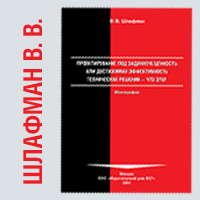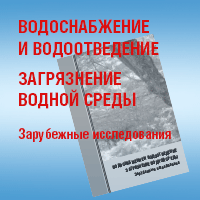№11|2019
WASTEWATER SLUDGE HANDLING
DOI 10.35776/MNP.2019.11.04
UDC 628.336.54
Key findings of full-scale tests of a sludge digestion technology
with biomass recycling
Summary
The results of laboratory studies and full-scale tests of the technology of wastewater sludge digestion with biomass recycling are presented. While conducting industrial tests of the technology with biomass recycling an increase in the disintegration of ash-free matter on average up to 56.6% (the value in the control option is 42.2%) was achieved. The disintegration of ash-free matter significantly improved the dewaterability of sludge. The average increase in biogas yield was 3%. During the experiments no negative impact of the sludge recycling technology on the operation of the digester was recorded. The obtained research results allow concluding that the introduction of sludge digestion technology with biomass recycling at the Moscow Wastewater Treatment Facilities is highly promising. Calculations showed that with the introduction of this technology a decrease in the dry matter amount at the outlet of the digesters compared with traditional technology by 9–10% can be expected. The demand for a flocculant for thickening the recycle is minimized by the improved dewaterability of sludge and, thus, the consumption of flocculant during dewatering is reduced.
Key words
anaerobic fermentation , wastewater sludges , sludge thickening , recycle , increase of ash-free matter disintegration
Скачать/download (PDF) free access
REFERENCES
- Kozlov M. N., Kevbrina M. V., Agarev A. M., Grachev V. A. [Promising options of optimizing thermophilic wastewater sludge digestion at the Moscow Wastewater Treatment Facilities. Projects of municipal infrastructure development. Issue 13. Utility facilities of a modern city: design experience and scientific support]. Collection of research papers. Moscow, Ekspo-Media-Press Publ., 2013, pp. 388–399. (In Russian).
- Giunter L. I., Gol’dfarb L. L. Metantenki [Digesters. Moscow, Stroiizdat Publ., 1991. 128 p.].
- Ostapczuk R. E., Bassette P. C., Bevington G. Gloversville-Johnstown joint wastewater treatment facility co-digestion leads to a sustainable future: Proceedings of the Water Environment Federation, Residuals and Biosolids, Sacramento, 2011, pp. 339–353.
- Terrence K., Boyer P. E. Anaerobic digestion: fundamentals and operation fundamentals and operation aspects: IWEA Plant Operations Seminar, Dekalb, Illinois, July 22, 2010.
- Vanyushina A. Ya., Agarev A. M., Moyzhes S. I., Nikolaev Yu. A., Kevbrina M. V., Kozlov M. N. Comparison of different thickening methods for active biomass recycle to anaerobic digestion of wastewater sludge. Water Science & Technology, 2012, v. 66 (8), pp. 1787–1793.
- Kevbrina M. V., Nikolaev Iu. A., Dorofeev A. G., Vanyushina A. Ia., Agarev A. M. [High-efficient technology of methane digestion of wastewater sludge with biomass recycling]. Vodosnabzhenie i Sanitarnaia Tekhnika, 2012, no. 10, pp. 61–67. (In Russian).
- Angelidaki I., Sanders W. Assesment of the anaerobic biodegradability of macropollutants. Reviews in Environmental Science and Biotechnology, 2004, v. 3, no. 2, pp. 117–129.







